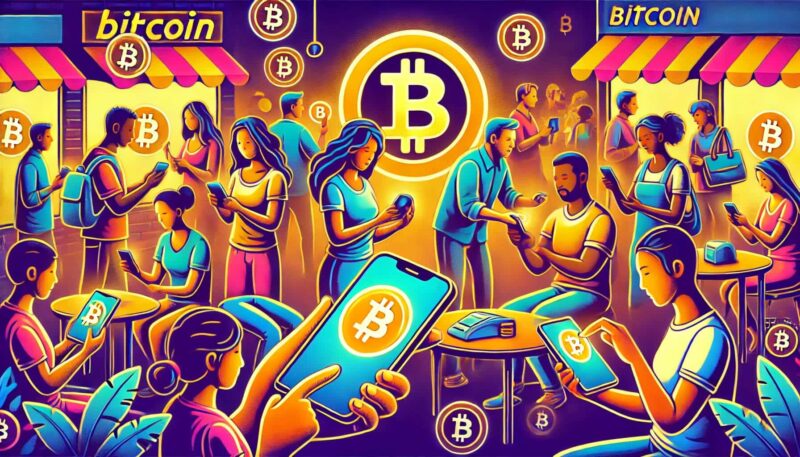El Salvador, the first country in the world to adopt Bitcoin as legal tender, continues to push the boundaries of Bitcoin adoption. The latest development in its ambitious Bitcoinization plan is a bold initiative to install Bitcoin nodes in every home by 2025. This visionary step not only strengthens the nation’s Bitcoin infrastructure but also aims to empower citizens with direct access to the decentralized Bitcoin network.
This article will explore the details of this initiative, how it aligns with El Salvador’s broader Bitcoin goals, the challenges it faces, and its potential impact on both the nation and the global Bitcoin ecosystem.
1. What Is El Salvador’s Bitcoin Node Initiative?
At its core, a Bitcoin node is a computer connected to the Bitcoin network that helps verify transactions and maintain the blockchain. Nodes play a crucial role in ensuring the network remains decentralized, secure, and functional. By installing nodes in individual homes, El Salvador aims to create a nationwide network of Bitcoin users directly participating in the blockchain, fostering education and decentralization.
According to local reports, the initiative includes:
- Distribution of Bitcoin node devices: Special hardware will be distributed to households, pre-configured to connect to the Bitcoin network.
- Educational programs: Residents will be trained on the role of nodes, how to operate them, and why they matter for decentralization.
- Internet infrastructure upgrades: To support node activity, the government is expanding high-speed internet access across rural and urban areas.
This ambitious project is part of El Salvador’s roadmap to become a fully Bitcoin-integrated nation by 2025.
2. Why Bitcoin Nodes in Every Home?
El Salvador’s plan to install Bitcoin nodes in every home isn’t just symbolic—it’s a step toward true decentralization and financial sovereignty. Here’s why this initiative matters:
a) Strengthening Decentralization
A distributed network of Bitcoin nodes ensures that no single entity or group controls the blockchain. By adding thousands (or even millions) of nodes through this initiative, El Salvador can significantly contribute to the global decentralization of Bitcoin. A larger, more distributed network is also more secure, making it harder for malicious actors to disrupt or compromise the blockchain.
b) Empowering Citizens
Installing nodes empowers ordinary Salvadorans by giving them direct participation in the Bitcoin network. Instead of relying on third-party services or centralized exchanges, citizens can verify transactions themselves and maintain a copy of the Bitcoin ledger. This aligns with Bitcoin’s ethos of individual sovereignty and financial freedom.

c) Supporting Bitcoin’s Scalability
The initiative will help distribute transaction verification across a wider network, reducing the strain on existing nodes. By expanding the network’s infrastructure, El Salvador can support increased Bitcoin usage as adoption grows, both locally and globally.
d) Economic Inclusion
El Salvador’s economy is heavily reliant on remittances, which account for over 20% of its GDP. By integrating Bitcoin nodes into homes, the country can facilitate faster, cheaper, and more transparent remittance transactions, directly benefiting low-income families who rely on funds sent from abroad.
3. Bitcoin Adoption Metrics in El Salvador
To understand the significance of this initiative, it’s essential to examine Bitcoin adoption trends in El Salvador:
- 70% of the population remains unbanked: Traditional banking systems have limited reach, but Bitcoin has provided financial access to millions through digital wallets like Chivo.
- Over 4 million Salvadorans use Bitcoin wallets: This represents a significant portion of the population (about 64%), highlighting the rapid adoption of Bitcoin as a financial tool.
- Bitcoin usage in remittances: Approximately $52 million in remittances was sent via Bitcoin in 2023, reducing fees compared to traditional services.
These metrics demonstrate that El Salvador’s citizens are increasingly adopting Bitcoin, setting the stage for the success of the node initiative.
4. Challenges to Installing Bitcoin Nodes in Every Home
While the initiative is ambitious and forward-thinking, it also faces several challenges:
a) Infrastructure Gaps
Many rural areas in El Salvador still lack reliable electricity and internet access. Expanding these services will require significant investment in infrastructure. According to government estimates, 37% of rural households currently lack access to broadband internet, which could hinder node installation in these regions.
b) Education and Awareness
Operating a Bitcoin node requires basic technical knowledge. While the government plans to implement educational programs, reaching every household and ensuring comprehension will be a monumental task. A recent survey showed that 40% of Salvadorans still do not fully understand how Bitcoin works, highlighting the need for widespread financial literacy efforts.
c) Costs and Maintenance
Installing and maintaining Bitcoin nodes requires initial investment and ongoing costs, including hardware, electricity, and internet. While the government may subsidize these costs initially, long-term sustainability will depend on household willingness and ability to bear these expenses.
d) Global Decentralization vs. National Focus
While the initiative enhances decentralization within El Salvador, critics argue that concentrating a large number of nodes in one country could introduce regional centralization risks. However, if successful, the initiative could inspire similar efforts worldwide, mitigating this concern.
5. Potential Impact of the Initiative
If executed successfully, El Salvador’s Bitcoin node initiative could have far-reaching implications:
a) Setting a Global Standard
El Salvador could become a global leader in Bitcoin adoption by demonstrating the practical benefits of decentralization. Other countries may look to replicate this model, furthering Bitcoin’s global reach.
b) Boosting Bitcoin’s Network Resilience
The addition of thousands (or millions) of nodes would strengthen the Bitcoin network, making it more resilient to attacks and improving transaction verification efficiency.
c) Increased Adoption and Economic Growth
By integrating Bitcoin nodes into everyday life, El Salvador could see an increase in Bitcoin transactions for day-to-day commerce, remittances, and savings. This could boost the local economy, reduce reliance on the U.S. dollar, and attract foreign investment.
d) Empowering a Bitcoin-Literate Population
Through education and participation, Salvadorans will gain deeper financial literacy and a better understanding of blockchain technology. This could position the country as a hub for blockchain innovation and talent.
6. Looking Ahead: What’s Next for El Salvador?
El Salvador’s government has set an ambitious goal of achieving full Bitcoinization by 2025, and the Bitcoin node initiative is a cornerstone of this vision. Beyond installing nodes, the government is working on:
- Expanding Bitcoin-friendly infrastructure: Including Bitcoin ATMs, merchant integration, and improved wallet accessibility.
- Encouraging foreign investment: El Salvador’s Bitcoin bonds and tax incentives are attracting crypto businesses and investors.
- Educating the next generation: Schools and universities are introducing Bitcoin and blockchain courses to prepare students for a decentralized future.
Conclusion: A Bold Step Toward Bitcoinization
El Salvador’s plan to install Bitcoin nodes in every home is more than a technological upgrade—it’s a societal transformation. By bringing decentralization into the hands of everyday citizens, the nation is reinforcing its commitment to Bitcoin as a tool for financial inclusion, innovation, and sovereignty.
While challenges remain, the potential rewards are immense. If successful, this initiative could serve as a blueprint for other nations, solidifying El Salvador’s role as a global leader in the Bitcoin revolution.
For more insights on Bitcoin adoption and global crypto trends, visit our Cryptocurrency Comparisons Guides.
Stay Updated
For the latest updates on Bitcoin adoption and El Salvador’s groundbreaking initiatives, follow us on:
- Twitter: https://twitter.com/FreeCoins24
- Telegram: https://t.me/freecoins24
Stay informed about the Bitcoin node initiative, global crypto trends, and innovative strategies in the world of cryptocurrency at FreeCoins24.io.
Special Offer
Want to join the crypto revolution? Sign up on Bybit today and claim up to $30,000 in deposit bonuses. Start your journey in Bitcoin trading with confidence and innovation!

















